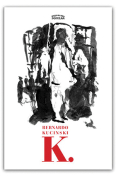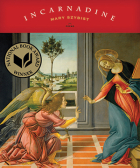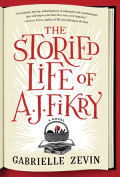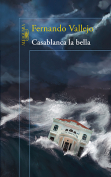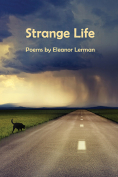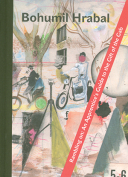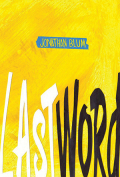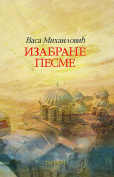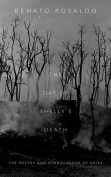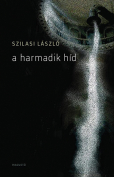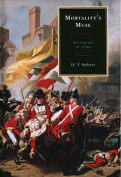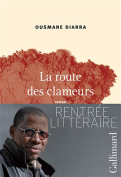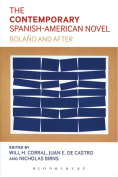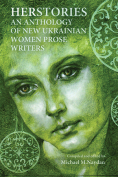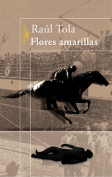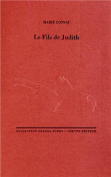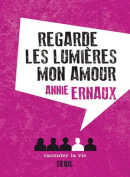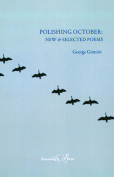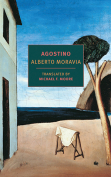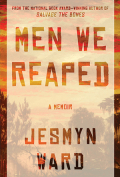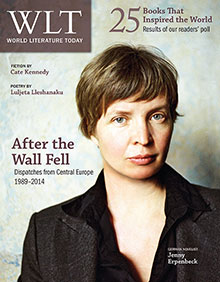Incarnadine by Mary Szybist
Minneapolis, Minnesota. Graywolf Press. 2013. ISBN 9781555976354
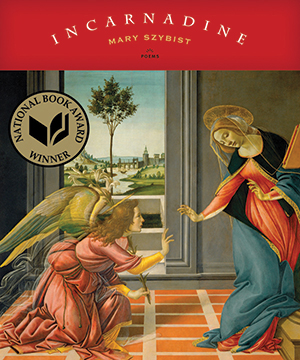 What happens when the nonhuman confronts the human? Mary Szybist explores the possibilities by making the Annunciation scene between Mary and the angel Gabriel the central encounter that is replayed in many different forms and modernized in a number of different contexts in her delicate, haunting collection. Szybist’s style is unusual in its imaginative force she invigorates the genre of devotional poetry with an uncommonly light yet vibrant touch. Conflating the mythic and the ordinary, the carnal and the sacred, her poems consider the range of ways in which annunciative confrontations that transform the spirit and heal the soul might occur in modern life. Like Yeats’s “Leda and the Swan,” Szybist’s work portrays the kaleidoscopically shifting sense of violence, terror, eros, and confusion inherent in an encounter between the human and the divine. She attempts nothing less than the realistic portrayal of an experience that cannot be logically understood by the human mind.
What happens when the nonhuman confronts the human? Mary Szybist explores the possibilities by making the Annunciation scene between Mary and the angel Gabriel the central encounter that is replayed in many different forms and modernized in a number of different contexts in her delicate, haunting collection. Szybist’s style is unusual in its imaginative force she invigorates the genre of devotional poetry with an uncommonly light yet vibrant touch. Conflating the mythic and the ordinary, the carnal and the sacred, her poems consider the range of ways in which annunciative confrontations that transform the spirit and heal the soul might occur in modern life. Like Yeats’s “Leda and the Swan,” Szybist’s work portrays the kaleidoscopically shifting sense of violence, terror, eros, and confusion inherent in an encounter between the human and the divine. She attempts nothing less than the realistic portrayal of an experience that cannot be logically understood by the human mind.
The vantage points and images through which the Annunciation is reimagined are strikingly diverse. In “Long after the Desert and Donkey,” Gabriel addresses Mary as if he were her vigilant shadow: “What a thing to be with you and have / no words for it. What a thing / to be outcast like that.” Their confrontation is reenacted as a televised moment in “Annunciation Overheard from the Kitchen”: “There were faint sounds / like walnuts being dropped by crows into the street.” Yet another version evokes the central scene through the startling grid of gulls attacking a whale: “why wouldn’t such sweetness be for them? / For they outnumber her.” Another poem disarmingly conjures their meeting through the images of a rare flower, Kinkaid’s lupine, and the endangered species of blue butterfly that is irresistibly drawn to it: “If I could bind myself to this moment, to the slow / snare of its scent, / What would it matter if I became / just the flutter of page / in a text someone turns.”
What these poems share including those that do not specifically focus on the Annunciation is a kind of blueprint in verse of the erotically variegated state of spiritual longing. This complex state of desire is conveyed cinematically in actions that are passionally heightened and shaped (“Hail”) or hypnotically slowed, like the action of turning in “Heroine as She Turns to Face Me.” What intelligence cannot explicate Szybist boldly advances through and beyond in poems that dramatize the state of spiritual change with a Dickinson-like originality and poise.
Rita Signorelli-Pappas
Princeton, New Jersey
